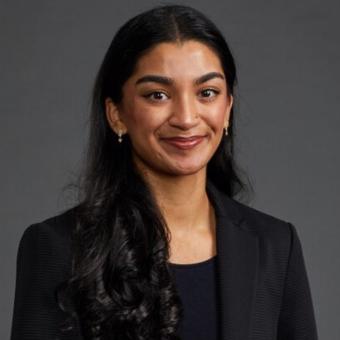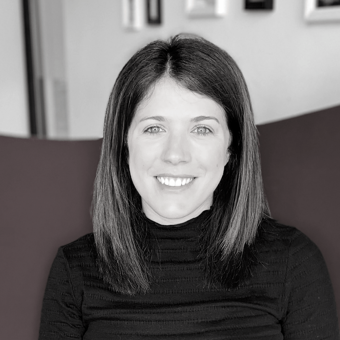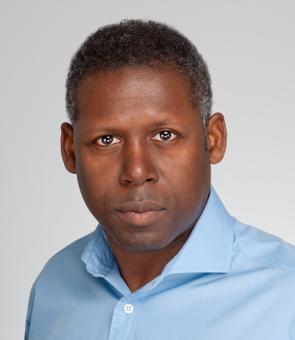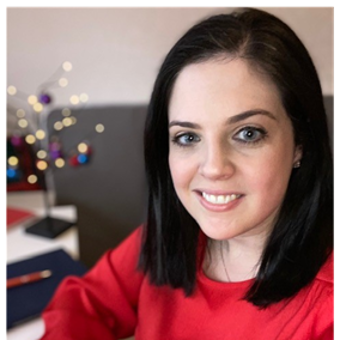From Leicester Polytechnic to Tier One of the Legal 500, Irwin Mitchell’s new National Family Law Partner tells The Brief how she rose to the top, and what she does to stay there
Zahra Pabani joined Irwin Mitchell late last year as National Family Law Partner. Ranked as a Tier One lawyer by Chambers & Partners and The Legal 500, she tells The Brief about her early life as a Ugandan refugee living in West Yorkshire, the winding road that took her to the top of her profession and the business development techniques that keep her there.
“I’m a divorce lawyer but I’m all about the love,” Zahra Pabani tells The Brief. It is Valentine’s Day when we speak and Irwin Mitchell’s new National Family Law Partner is planning, after work, to put her two-year-old daughter to bed, cook her husband a romantic meal, “and we will just have a wonderful evening”.
Outside of the law, she continues, “I am all about my family and my friends, having a good time and hanging out.” At work, too, she says, “I genuinely love all the people I work with.
“Maybe I’m still in the honeymoon period because it’s a new role but every day is a great day. Every day is a day to excel.”
That honeymoon period began last autumn when she moved to Irwin Mitchell following 17 years in the family law team at Shakespeare Martineau in Birmingham, where she was Partner and Team Leader. Her new role, while based in Birmingham, carries responsibility for business development nationally.
The child of refugees from Idi Amin’s regime in Uganda, she grew up in Batley, West Yorkshire, during the 1970s and 80s. “We started from scratch with nothing and we suffered a lot of racist abuse,” she recalls.
Hidden gem
The family team in Birmingham, with whom she works on a day-to-day basis, will number 21 by the end of April – four of them support lawyers, the rest fee-earners, including three partners. “I knew it would be good before I arrived but I didn’t realise it was going to be incredible,” she says.
“We are a hidden gem here in Birmingham, because we are Irwin Mitchell’s largest family team and the way it’s structured we’ve got people at all levels, and a really strong paralegal level as well. In this day and age clients want excellent expertise but they also want to make sure things are cost-effective: so, for example, no solicitor, associate or partner should be drafting a divorce petition – that is what a paralegal should be doing.”
Pabani is ranked as a Tier One lawyer by Chambers & Partners and The Legal 500, and her practice focuses on high net worth individuals and businesspeople. This means that, as well as divorce work, she also deals with pre-and post-nuptial agreements, and living together agreements.
She also carries out complex children matters and advises on international disputes. She is a committee member and former Chair of Resolution in the West Midlands.
Her experience with the latter provides an insight into the way her early career unfolded.
“When I first tried to join Resolution in the West Midlands they wouldn’t let me in because I was too new,” she explains. “As soon as they told me that I said to myself ‘I’m going to be Chair’ – and I was, for five years.”
Starting from scratch
Pabani’s route to the top was what many in the profession would describe as “non-traditional”.
The child of refugees from Idi Amin’s regime in Uganda, she grew up in Batley, West Yorkshire, during the 1970s and 80s. “We started from scratch with nothing and we suffered a lot of racist abuse,” she recalls.
“But my parents knew that we had to get an education because if we were to get chucked out of the country again, as we had been from Uganda, we needed to be able to deal with it better than they had.
“I didn’t go to a good school, though, and I didn’t know what I wanted to do or what I wanted to be, but I was bright enough and I did averagely well at my GCSEs and A Levels. Then I went to Leicester Polytechnic – which is now De Montfort University – where I studied law and got a 2.2.”
Graduating with a 2.2 from a former polytechnic in the mid-1990s recession, she struggled to find a position as a trainee. Instead she secured a job with a high street law firm as a secretary.
“I was the worst secretary in the world but I was really good with the clients and the Family Law Partner there saw potential in me,” she says. After some persuasion she was taken on by them, first as a paralegal then as the firm’s first article clerk.
Upon qualification she worked for several years doing Legal Aid family work, which she believes provided the best-possible grounding. Eventually, however, she concluded she wanted to buy a house and car, and go on holiday, so she decided specialise in private finance and children work.
She managed to land a role with Shakespeare Martineau, as it is now, in Birmingham in 2002. “It was really, really hard to get a job with my CV, which didn’t have anything dramatically great on it, so I owe a lot to Shakespeare Martineau because they gave me a break,” she says.
She progressed to Associate within three months of appointment, and to Partner within a further three months. It remains, she says, “a really great firm with lots of brilliant things going for it” but, after returning from maternity leave following the birth of her child, she simply felt she wanted to “change things up – and sometimes that means changing where you physically are”.
I knew it would be good before I arrived but I didn’t realise it was going to be incredible. We are a hidden gem here in Birmingham, because we are Irwin Mitchell’s largest family team and the way it’s structured we’ve got people at all levels, and a really strong paralegal level as well.
A changing profession
One of the great attractions of Irwin Mitchell, Pabani says, was its commitment to flexible working, which enables her to spend a day a week at home with her toddler. This is not, she continues, yet typical of the sector as a whole, although she acknowledges that some other firms are taking steps in the right direction.
While things are moving forward, albeit slowly, for women, Pabani believes the profession has actually gone backwards in terms of social mobility. This is partly because of cuts to the Legal Aid budget that provided the work on which she cut her teeth, and also because so many graduates are now competing for a finite number of roles.
Pabani is highly commercial and says that ambitious junior lawyers need now not only to be able to practise the law but to understand profit margins and how their teams operate as businesses. They also need to be distinctive, both in terms of finding a niche at which they can excel and in the way they present themselves.
“Confidence without arrogance is what you should ooze,” she explains.
She also says junior lawyers need to hone their business development skills so that, when the time comes, they know how to hit the targets with which they will be presented.
Business development
For Pabani business development takes three main routes. One of these is PR and, having had media training, she is a regular commentator on family law issues in print and broadcast media.
Another route is networking, and she maintains close relationships with private banks, investment houses, accountants, psychologists, universities and HR directors of businesses. Of the latter, she says, “If any employees within businesses are struggling at home they’re not going to be effective employees and those businesses aren’t going to make as much money as they can.”
She also keeps in touch with former clients, and is amused by The Brief’s suggestion that she probably doesn’t get much repeat business. As well as generating additional work in their own right through, for example, pre-nuptial agreements when they remarry, she says former clients are also some of the most valuable referrers of work.
Sometimes this works in unexpected ways, as in the case of a business CEO for whom she had worked on a number of personal matters, and who asked if she could give some free advice to his cleaner who was suffering difficulties at home. Pabani obliged, and thought no more about it.
Several months later a new client walked through her door looking for representation in a five-million-pound divorce following a short marriage with no children – the kind of case family lawyers dream about. When she asked him how he had found her, he told Pabani he had received her details from his elder stepsister.
His stepsister, it turned out, attended the same regular coffee morning as Pabani’s CEO client’s cleaner. “As far as I am concerned you can get work from anywhere, anybody I meet can be a referrer of work,” she concludes.











